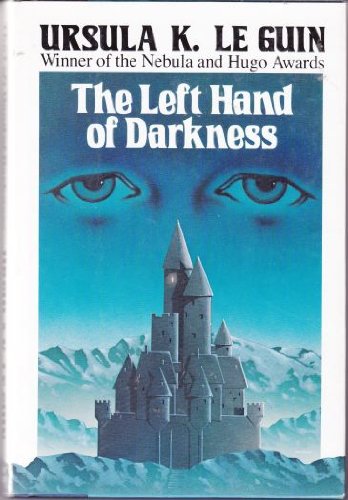
nannah
Content warnings:
- incest (this is one of the themes of the book; I’d advise you not to read if this is a serious trigger, even if nothing is explicitly shown)
Representation:
- I believe everyone (besides the MC) is based on Inuit peoples
- everyone besides the MC is also ambisexual--both male and female
- the MC is (presumably) Black and gay/bi
(I’m going to use they/them pronouns for the people of Gethen in this review)
Genly Ai is an envoy sent to the planet Gethen in the hopes that it will join an interplanetary alliance. Gethen is in the midst of an ice age, and its two largest lands are in the midst of a quarrel. Genly has studied the planet's cultures and some of its languages, and prepares himself as best he can for the intense cold, but he can’t quite accept the ambisexuality of Gethen's people. If he can’t even find a way to overcome his prejudices and connect with the one person who trusts him, his mission will never succeed.
It’s hard to describe how I feel about this book. Without a doubt, the best part about it is its writing, seconded by the satisfying way the plot comes together at the very end. But it took me a while to become invested in the story and the characters (I loved Estraven from the start, but only them). And although the numerous made-up terms didn’t confuse me, the sheer number of them introduced at times felt a little ridiculous. However, the second half of this book was magnificent. Stakes became higher and more personal, and when Genly and Estraven began to cross the glacier, I was engrossed.
The use of he/him pronouns for the people of Gethen didn’t bother me like it did other reviewers. Especially since I had read a little bit of Ursula K. Le Guin’s afterword before getting into the novel first. In the afterword written in 1994, Le Guin regrets not using gender-neutral pronouns as she had “believed then that the masculine pronoun in English was genuinely generic, including both male and female referents” (she wrote the book in 1969, after all).
I’m not even sure what more to say. I’ll probably have to think more about it before I can arrange my thoughts better.

